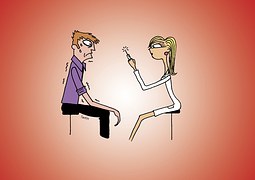Anxiety is the body’s response to forces outside it. However, there are cases where self-talk that is negative can also make us anxious. Self-talk becomes negative when we keep telling ourselves, and the body anticipates that something worst will happen.
What causes anxiety?
The chief trigger of anxiety disorder has been found to be stress. An anxiety disorder may also be caused by substance abuse, brain chemistry, genetics, medical and environmental factors. These factors can either work in isolation or a combination of any of them.

Substance use and abuse as a cause of anxiety
Many patients who admitted or enrolled for mental health treatment have been found to suffer from anxiety disorders like General Anxiety Disorder (GAD), social and panic disorders. Most of these patients have been hooked to either benzodiazepine or alcohol dependence.
Other substance uses are intoxication and withdrawal from amphetamines, heroin, and cocaine which are all illicit. Withdrawal from using drugs for prescription such as barbiturates, benzodiazepines, and Vicodin.
Brain chemistry as a cause of anxiety
When levels of neurotransmitters are abnormal, people affect will suffer from GAD. If neurotransmitters’ working is not proper, there is a breakdown in the communication network of the brain. This will then trigger a reaction from the brain which is not normal. It is this abnormal reaction that causes anxiety.
Genetics as a cause of anxiety
In the study of genetics, offsprings inherit traits from the parents. This tends to follow a predictable path. It, therefore, means that if there is a history of anxiety in a family, the likelihood of their offsprings inheriting it is greatly increased. Some people have a genetic predisposition to suffer from anxiety. Their chances of suffering from anxiety are greatly increased.

Researchers have suggested that the history of a family with anxiety have an increased likelihood of their offspring developing it. Genetic predisposition of some people places them at a greater disadvantage of having this order. A person will, therefore, suffer from anxiety disorder based on their family tree.
Medical factors as a cause of anxiety
Medical conditions that have been associated with anxiety are heart conditions, infections, asthma, and asthma. Other medical causes are pulmonary embolism and emphysema which results in oxygen being cut off from the body.
Environmental factors as a cause of anxiety
The following environmental factors cause various anxiety types:
- Trauma caused by death of a person very close, sexual and
physical abuse - Stress due to school, work, money and finances, natural disasters
- Undersupply or no oxygen when in areas whose altitude is
high - Having looked at what causes anxiety, how would somebody know that a person is suffering from this disorder?

How to diagnose anxiety
The professionals who deal with anxiety are clinical psychologists and psychiatrist. They not diagnose anxiety but also arrest the causes. Like other clinical assessments, the patient’s personal and medical history is taken, the performance of physical examination done and where necessary laboratory tests were done. The laboratory tests may be pointers to other symptoms.
Conclusion
In conclusion, with proper diagnosis and medication, individuals can have their health restored and enjoy life thereafter. Advancement in the treatment of this disorder will restore proper functioning of these individuals’ bodies.




 develop a specific phobia which is where you have an irrational fear of something that poses little or no threat. Generally speaking, if you live in the Northern Hemisphere, you have little to fear from spiders, but it is surprising how many people suffer from this fear. This is what is called a simple phobia; it is an irrational fear of one thing that poses little threat to you in your everyday life.
develop a specific phobia which is where you have an irrational fear of something that poses little or no threat. Generally speaking, if you live in the Northern Hemisphere, you have little to fear from spiders, but it is surprising how many people suffer from this fear. This is what is called a simple phobia; it is an irrational fear of one thing that poses little threat to you in your everyday life.